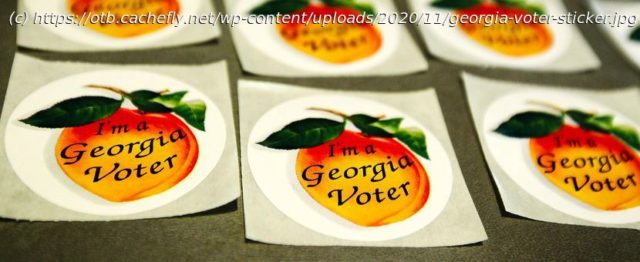It makes voting harder.
As expected, the Georgia state legislature passed a new set of rules governing elections in Georgia, and Governor Kemp has signed the bill into law. This is one of several such legislative packages from across the country meant to address alleged problems in the US voting system. It should be noted that the main “problem” with the 2020 election is that the Republicans lost the presidency and the Senate, all in the context of voting being easier in some states, Georgia included, due to pandemic-related measures. Voter turnout was also the highest it had been in roughly a century (how much of that was due to vote-by-mail being easier in many places and how much of that was the result of voter enthusiasm due to a highly polarizing incumbent plus pressing national concerns such as the heightened racial tensions and a pandemic is its own discussion). WaPo summarizes the bill as follows: The new law imposes new identification requirements for those casting ballots by mail; curtails the use of drop boxes for absentee ballots; allows electors to challenge the eligibility of an unlimited number of voters and requires counties to hold hearings on such challenges within 10 days; makes it a crime for third-party groups to hand out food and water to voters standing in line; blocks the use of mobile voting vans, as Fulton County did last year after purchasing two vehicles at a cost of more than $700,000; and prevents local governments from directly accepting grants from the private sector. The 95-page law also strips authority from the secretary of state, making him a nonvoting member of the State Election Board, and allows lawmakers to initiate takeovers of local election boards — measures that critics said could allow partisan appointees to slow down or block election certification or target heavily Democratic jurisdictions, many of which are in the Atlanta area and are home to the state’s highest concentrations of Black and Brown voters. Governor Kemp assessed the situation thusly: Kemp signed it shortly afterward, saying at a news conference that with the new law, “Georgia will take another step toward ensuring our elections are secure, accessible and fair.” “Contrary to the hyper-partisan rhetoric you may have heard inside and outside this gold dome, the facts are that this new law will expand voting access in the Peach State,” the governor added, noting that every county in Georgia will now have expanded early voting on the weekends. Kemp deserves credit for standing up to Trump during the former president’s attempts at pressuring Georgia to overturn the clearly confirmed outcomes of last November’s vote. But, Kemp is clearly concerned about Trump and his allies attacking him when he seeks re-election in 2022. I also think it is not too cynical to note that Kemp won narrowly in 2018 and just saw the GOP lose the presidency and two US Senate seats narrowly in his state. If these new rules shave even a small amount of Black turnout in the state in 2022, that would be a boon to his own political goals. I would note that based on the reporting I have seen I see no basis for the notion that “the facts are that this new law will expand voting access in the Peach State.” Likewise, while I am a proponent of elections that are “secure, accessible, and fair” I also see those are code words that tend, in this context (i.






